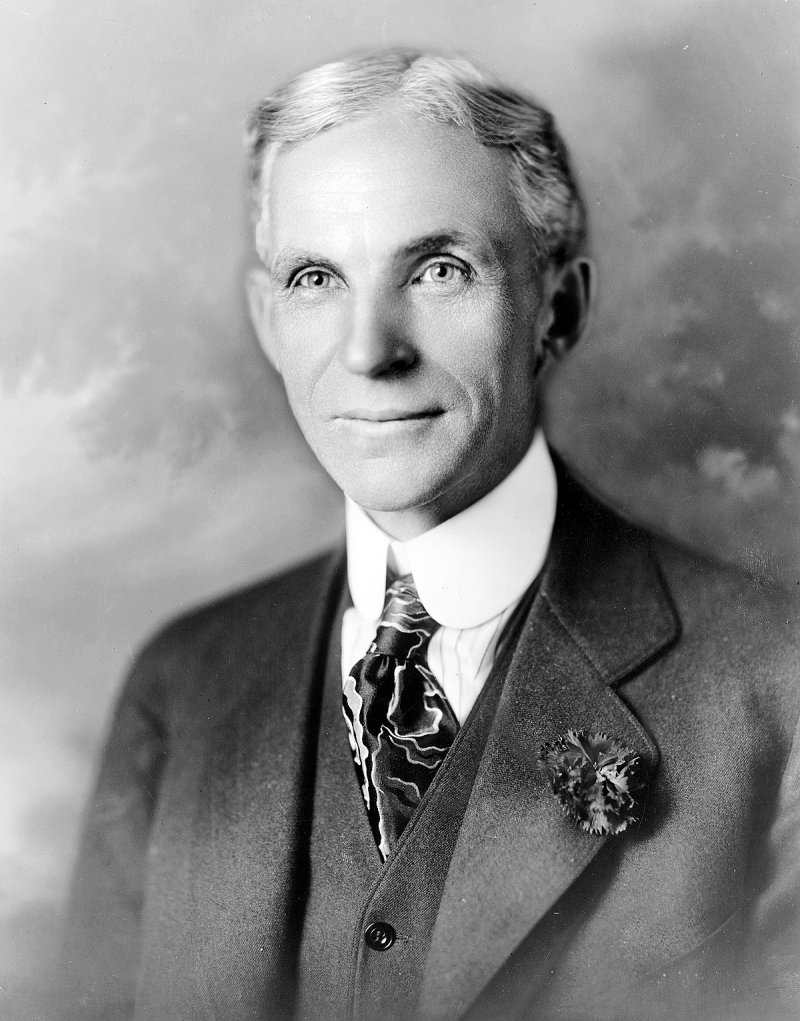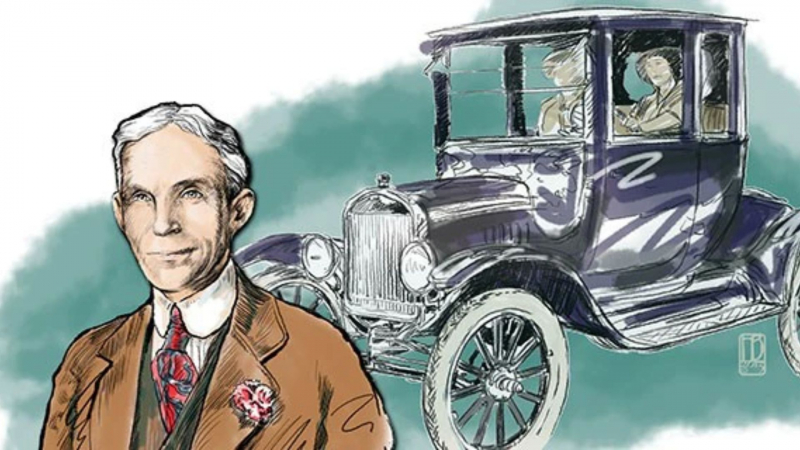Henry Ford

Henry Ford (1864-1947) was the founder of the Ford Motor Company. Ford pioneered the use of the assembly line in the production of automobiles, which helped to lower costs and make automobiles affordable to the typical American consumer. The Model T Ford automobile was crucial in enabling broad car ownership following World War I. Due to enhanced productivity, Ford was also able to offer higher compensation to employees.
Although Ford played an important role in the company's development, in the early days, he relied mainly on the organization and administration of his Canadian partner James Couzens to advertise and distribute the automobiles. Couzens had a keen business sense. However, Ford and Couzens frequently clashed, and Ford resented Couzens' exorbitant income ($150,000 per year in 1914). Couzens sold out and departed the company in 1915. Ford continued to grow and expand, but by the 1920s, competing automakers were beginning to chip away at Ford's dominance. General Motors and Chrysler, in particular, emulated Ford's efficiency while also offering superior cars, such as those with an automatic starter.
War was something Henry Ford despised. In 1915, he helped sponsor a peace ship to Europe and spoke out against the "vague financiers who encourage war." In the run-up to World War II, he, like many Americans, embraced isolationism. Even after the attack on Pearl Harbor, he refused to participate in the Second World War effort, allowing other authorities in the Ford corporation to develop Ford into one of the largest military jet producers of the war. Henry Ford was not a member of any political party. However, Woodrow Wilson persuaded him to run for the Senate as a Democrat in 1924. He did not return to party politics after barely losing his attempt.


























